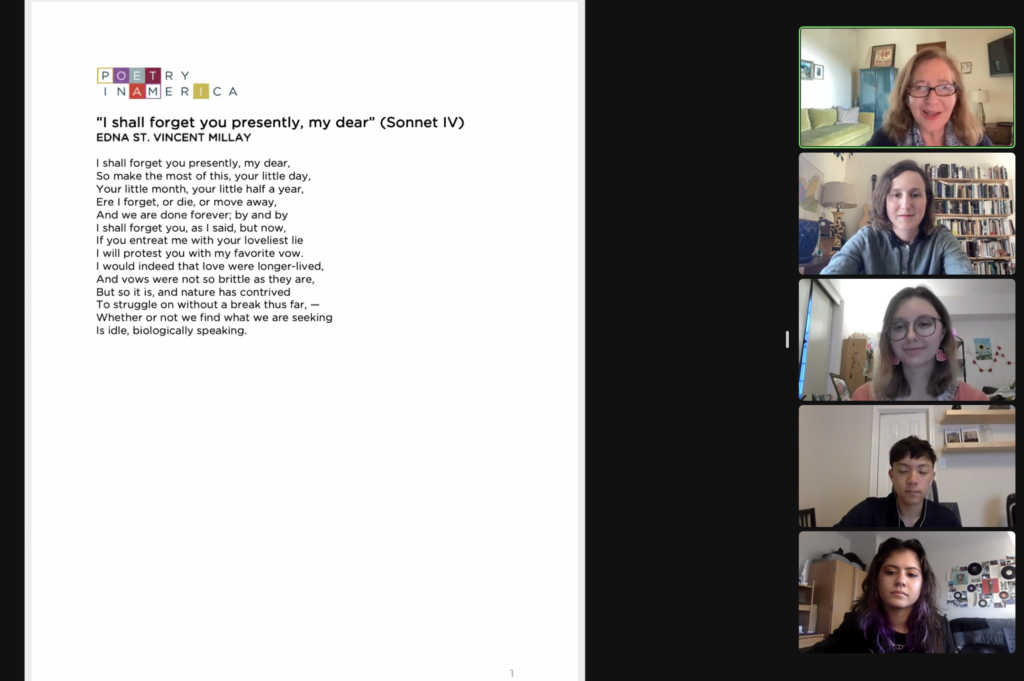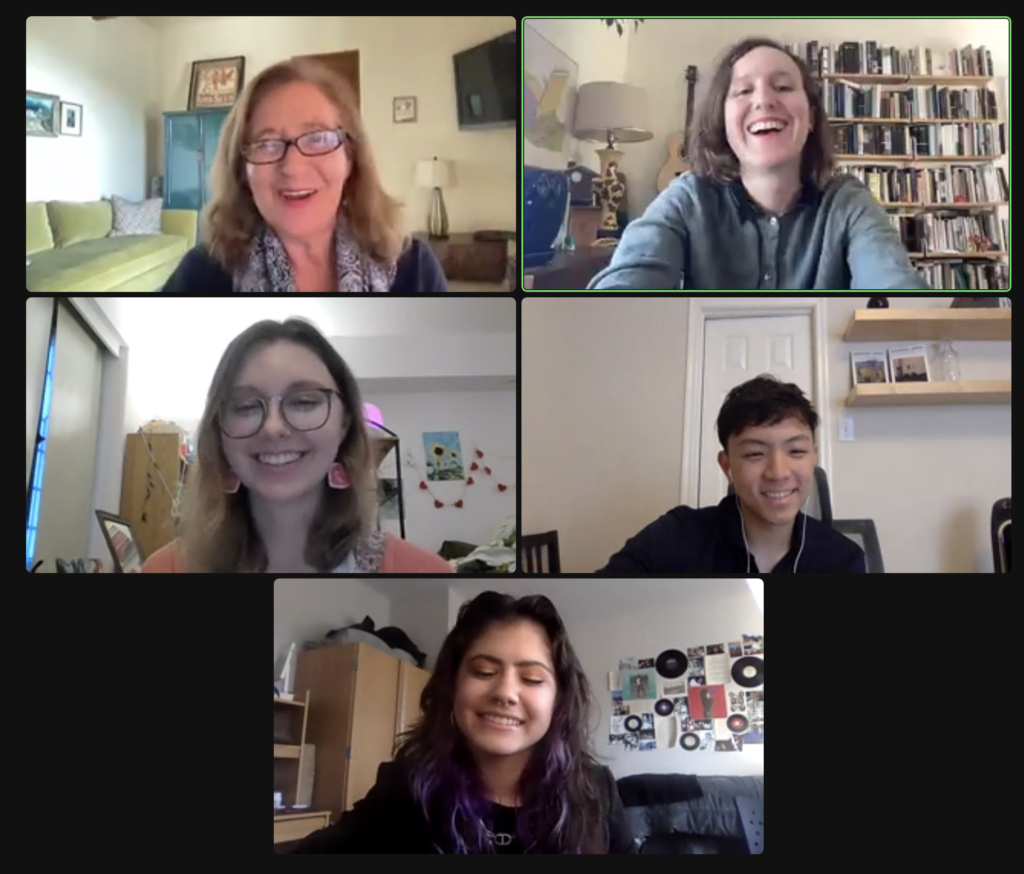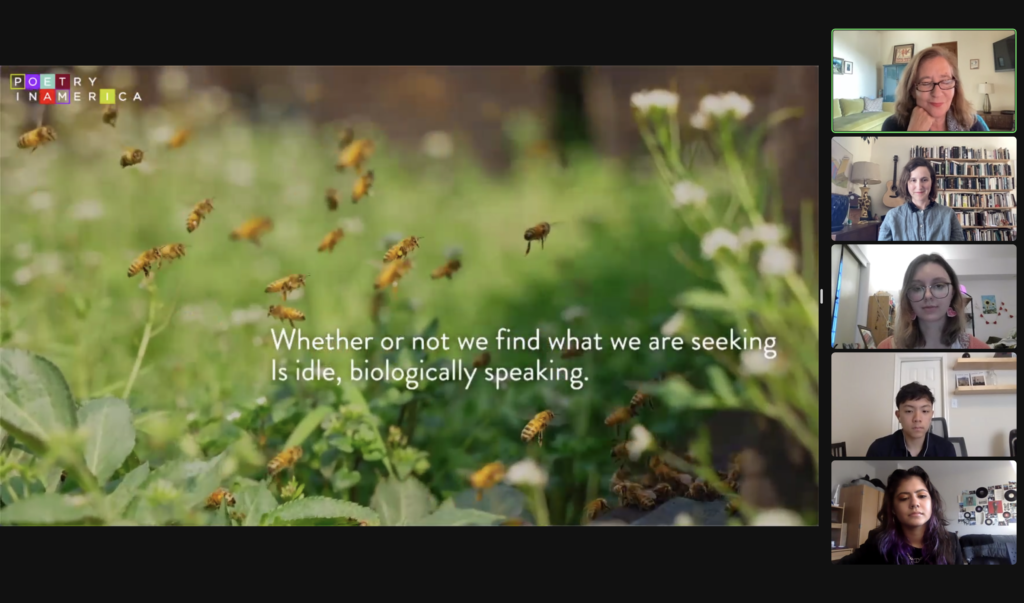So make the most of this, your little day: Poetry in America and National Student Poets in Conversation

On April 12th, 2022, Poetry in America’s own Elisa New and Gillian Osborne joined the National Student Poets Class of 2020 for a discussion of Edna St. Vincent Millay’s provocative poetry, and their own craft. The virtual event was co-presented by Scholastic, the Institute of Museum and Library Services, and the Alliance for Young Artists & Writers.
2020 student poets Isabella Ramirez, Ethan Wang, and Rosemary Dietz initially discussed Millay’s “Sonnet IV; I shall forget you presently, my dear” in our Season Three finale on PBS. Tuesday’s event brought their conversation to current and prospective students in the Poetry in America for High Schools program, who read Millay as part of their study of 1920’s U.S. poetry.

Given the old timey feel of Millay’s name (“Edna,” “St. Vincent”), and the near centennial vintage of the poem – to say nothing of the more-than-1000-year history of the sonnet – the student poets were pleasantly surprised at the freshness and relevance of the poem’s form and content. As Rosemary said, unlike the Petrarchan and Shakespearean sonnets that popularized the form, “[Millay’s sonnet] celebrates something very different than love. It celebrates having a good time with someone and then knowing that it doesn’t have to last forever.” Isabella responded to the poem by noting, “As a queer person, I feel that inherently my love exists outside of many of the institutions that Millay implicitly critiques— such as marriage, motherhood.”

For the student poets, and the students listening in the audience, the conversation shed some light on why a poet might choose to write in a particular form. Isabella noted, “a lot of things became clearer to me as … I saw how Millay plays into [the sonnet] structure … and how she uses it to her advantage and subverts it … I love to see how many moving pieces you can get in just 14 lines… It’s quite a feat as a writer and as a poet.” In response, Rosemary observed of the sonnet, “It’s good to see that [even with] a form that is entrenched in meaning, you don’t have to stick with that meaning forever. And today poets and writers continue to subvert forms that have been entrenched for hundreds or even thousands of years and thats very very exciting to me.”
